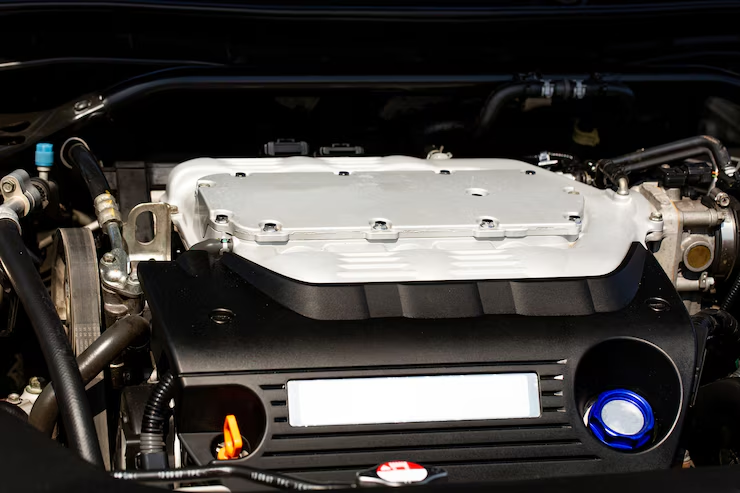When it comes to luxury and performance, Mercedes-Benz is a name that stands out. But even the finest vehicles are not immune to wear and tear—especially when it comes to components like the air conditioning (AC) compressor. The Mercedes AC compressor plays a crucial role in maintaining a comfortable interior environment, particularly during hot weather. If this component fails, it can lead to a loss of cooling efficiency, uncomfortable drives, and expensive repairs if not addressed promptly.
In this article, we’ll take a closer look at how the Mercedes air conditioner compressor works, signs of a failing unit, and what’s involved in a Mercedes AC compressor replacement.
What Is a Mercedes AC Compressor?
The AC compressor is the heart of your vehicle’s air conditioning system. It is responsible for compressing and circulating refrigerant through the system. In simple terms, it takes low-pressure refrigerant gas from the evaporator and compresses it into a high-pressure, high-temperature gas before sending it to the condenser. This process is essential for cooling the air that eventually gets blown into your car’s cabin.
In Mercedes-Benz vehicles, especially newer models, the AC compressor is often part of a sophisticated climate control system. These compressors are engineered for efficiency and durability, but over time, like all mechanical parts, they can wear out or fail.
Common Symptoms of a Failing Mercedes AC Compressor
Recognizing early signs of a failing Mercedes air conditioner compressor can save you from a complete breakdown and costly repairs. Here are the most common symptoms:
- Lack of Cold Air
If the air blowing from your vents is no longer cold—or not as cold as it used to be—the compressor may not be functioning properly. This is often the first sign of a problem. - Unusual Noises
A failing compressor can produce strange noises such as grinding, squealing, or clunking when the AC is turned on. This typically indicates internal damage like a worn bearing or broken internal components. - Compressor Clutch Not Engaging
The compressor clutch is responsible for turning the compressor on and off. If the clutch doesn’t engage when you activate the AC, it could be due to an electrical fault, a failed clutch, or a seized compressor. - Leaking Refrigerant or Oil
Refrigerant leaks can prevent the system from maintaining pressure. A damaged compressor housing or seals may lead to visible leaks under the vehicle. - Frequent Cycling On and Off
If the compressor is rapidly turning on and off (short-cycling), it could indicate an issue with pressure regulation, low refrigerant levels, or a failing compressor.
Causes of AC Compressor Failure
The Mercedes AC compressor can fail for several reasons, including:
- Age and Wear: Over time, internal components degrade due to heat and friction.
- Lack of Lubrication: The compressor requires oil to function properly. Low oil levels can lead to overheating and failure.
- Contaminated Refrigerant: Dirt or debris in the refrigerant can damage the compressor internals.
- Electrical Issues: Problems with wiring or fuses can prevent the compressor from operating correctly.
- Other AC Component Failures: Faulty expansion valves, blocked condensers, or broken belts can strain the compressor and lead to failure.
Mercedes AC Compressor Replacement: What to Expect
Replacing a Mercedes air conditioner compressor is a detailed process and should ideally be handled by a certified technician—especially for luxury models where access and system design can vary widely. Here’s a general overview of what the replacement involves:
1. Diagnosis
Before replacing the compressor, a mechanic will check refrigerant pressure, inspect for leaks, and ensure the problem is not with the clutch, relay, or other AC components.
2. Recovery of Refrigerant
The existing refrigerant is safely recovered using specialized equipment, as releasing it into the atmosphere is illegal and harmful to the environment.
3. Removal of the Old Compressor
The technician will remove drive belts, disconnect the compressor clutch wiring, and remove bolts securing the compressor to the engine. The refrigerant lines are also disconnected at this stage.
4. Installation of the New Compressor
A new or remanufactured compressor is installed, along with fresh refrigerant oil. In many cases, the receiver/drier and expansion valve are also replaced to ensure the system remains clean and functional.
5. System Recharge and Testing
The system is evacuated to remove air and moisture, then recharged with the correct type and amount of refrigerant. Finally, the AC is tested for proper operation and cooling performance.
Cost of Mercedes AC Compressor Replacement
The cost of replacing a Mercedes AC compressor varies widely depending on the model, labor rates, and parts quality (OEM vs. aftermarket). Here’s a general estimate:
- Parts: $400–$1,200
- Labor: $300–$600
- Total Cost: $700–$1,800
Luxury models such as the S-Class or AMG variants may fall at the higher end of that range due to their complex systems and part costs.
Tips to Prolong AC Compressor Life
- Run the AC Regularly: Even during winter, running the AC occasionally keeps the compressor lubricated.
- Replace Cabin Filters: Dirty filters can restrict airflow and affect system performance.
- Keep the System Clean: Regularly inspect for leaks and maintain proper refrigerant levels.
- Address Issues Early: Don’t ignore unusual noises or weak airflow—early intervention can prevent total compressor failure.
Conclusion
The Mercedes AC compressor is a vital component of your vehicle’s climate control system. While it’s built to be durable, it can fail due to wear, electrical issues, or poor maintenance. Recognizing the signs of trouble early and addressing them promptly can save you from discomfort and expensive repairs. Whether you’re driving an E-Class, C-Class, or high-performance AMG model, keeping your Mercedes air conditioning system in peak condition ensures a comfortable ride all year long.
